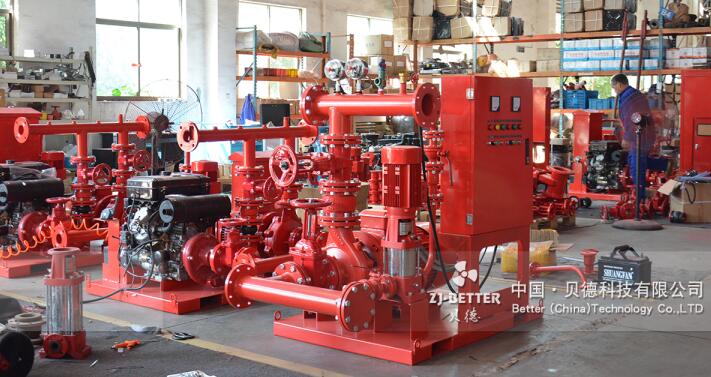What factors determine the fire pumps efficiency?
- The fire pump itself
The fire pump efficiency is one of the main factors. Different fire pumps often have different efficiency, but the same fire pump type under the same working conditions, there is also a deviation in efficiency, the gap is often around 15%.
- Whether the operating conditions are consistent with the rated conditions
Generally speaking, the operating conditions of fire pumps are lower than the rated operating conditions of fire pumps. Fire pumps have low efficiency and high energy consumption. The ideal state is that the two are consistent.
3.Stability of motor efficiency
The stability of the fire pump motor efficiency is one of the key factors determining the fire pump efficiency. Generally speaking, if the motor efficiency is unstable, the operation of the fire pump will also fail, and the motor efficiency will be higher, and the operation efficiency of the fire pump will be higher.

- Hydraulic loss degree
The degree of hydraulic loss of a fire pump includes loss of hydraulic friction and local resistance. After the fire pump runs for a period of time, it is inevitable that the surface of parts such as impellers and guide vanes will be abraded, the hydraulic loss will increase, and the hydraulic efficiency will be reduced, which will affect the fire pump efficiency.
5. Degree of equipment leakage loss
Everyone knows that fire pumps, including impeller seal rings, interstates, and axial force balancing mechanisms, will all appear leakage losses. The more serious the leakage loss is, the higher the possibility of later failures. Naturally, the operating efficiency of the fire pump will decrease.
The efficiency of fire pumps is a key factor in ensuring fire safety. With high-efficiency fire pumps, life safety is guaranteed.